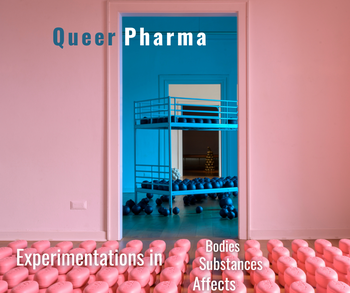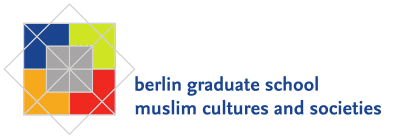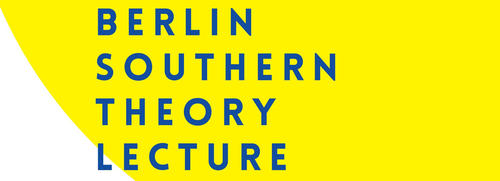Call for Papers: Queer Pharma - Experimentations in Bodies, Substances, Affects
News vom 02.10.2024
June 4-6, 2025
Schwules Museum Berlin & Freie Universität Berlin
Organised by Max Schnepf & Hansjörg Dilger
Abstract submission: November 24, 2024
Notifications of acceptance: December 6, 2024
Pre-circulation of paper drafts (3.000 words): May 4, 2025
Experimentations with pharmaceutical substances cradle queer potential – bodies and organisms transform, relations shift, emotions swell or fade into quietude. With capacities to intervene in life’s processes, drugs and medicines are not merely products of ‘Big Pharma,’ but agents of uncanny possibility. How might we imagine minor ‘pharmas’ in tension with or on the margins of the dominance, epitomized by the capitalized ‘Big’? Taking Queer Pharma as a counterpoint, this workshop invites submissions that ethnographically engage with uncertainties and improvisations in experimenting with bodies, substances, and affects – whether through drug use or other pharmaceutical practices (Race 2009, 2018). What new material and affective constellations might emerge if we were to focus on experimentation as a queer practice?
Queer and trans communities have found ways to intervene in, and live otherwise with, the production, distribution, and regulation of drugs. During the HIV/AIDS crisis, activism played a crucial role in accessing pharmaceuticals and influencing drug development (Crimp 1993; Epstein 2009). Until today, mutual aid networks, art, and activism have created alternative infrastructures for sharing knowledge and resources, fostering joy and hope, and tweaking pharmaceutical protocols. Recent queer interventions also include microdosing or overdosing testosterone to probe the body’s affective and material capacities (Preciado 2013; Nass 2023) and enhancing erotic pleasures with often illegalized substances (Møller and Hakim 2021). How do these experimentations grapple with, queerly inhabit, or displace the designs of ‘Big Pharma’? How have certain substances, their materialities and politics, shaped queer communities? What kinds of subjectivity do pharmaceutical regimes presume and how do these priorities ramify growing disparities in global health?
Recent approaches in Social and Cultural Anthropology as well as Science and Technology Studies (STS) have emphasized the plasticity and fluidity of drugs and their effects on gendered bodies and sexual socialities (Collin 2016; Hardon and Sanabria 2017; Pienaar et al. 2020). This focus on substances as “emergent and contingent” (Pienaar et al. 2020, 2) aligns with queer approaches that embrace creative experimentations and revel in unpredictability. Experimentation, as Kane Race (2018, 7) puts it, entails “exercises of the self in the activity of feeling and/or thought,” with bodies and substances continually ‘becoming’ through their capacities to affect and be affected (Dennis 2019). We encourage ethnography-based contributions that engage this ontological instability of bodies and substances. What effects do experimental practices evoke, and what “side affects” (Malatino 2022) might emerge? Simultaneously, where might experimentation as an analytical framework encounter material barriers and ethical limitations in the fields we study?
Given the experimental thrust of the workshop, we also welcome reflections on method and representation from within and outside of Social and Cultural Anthropology. Paul B. Preciado’s (2013) self-experiments, for example, translate into writing that transmits a ‘Testo high.’ Others have called on us to be surprised by the chemical compounds we study (Dumit 2021) or to “think with pleasure” rather than reducing it to an analytical object (Race 2017). We invite explorations that experiment with forms of ethnographic representation (Pandian and McLean 2017) – so as to mirror the uncertainties and improvisations inherent in Queer Pharma. What other futures might such explorations manifest and how can they expand critiques of pharmaceutical capitalism?
The workshop aims to explore the intersections of the Anthropology of Pharmaceuticals and Queer Studies through empirical case studies. While focusing on ethnographic work, we also welcome interpretive and arts-based research that critically engages with experimentations in ‘pharma.’ Submissions may explore how communities and individuals refuse, repurpose, or navigate pharmaceutical regimes. They might also examine how experimental engagements with drugs challenge or reaffirm normative understandings of gender, sexuality, health, illness, and personhood. Topics could include self-medication, off-label uses, harm reduction, alternative health infrastructures, drug-sharing networks, grassroots pharmaceutical research, or interventions into the political economies of pharmaceuticals. Since we are working towards a joint publication of a selection of the workshop papers, we require pre-circulated drafts to facilitate thorough discussion and engagement.
Please submit an abstract of no more than 300 words, along with a brief bio (150 words) to max.schnepf@fu-berlin.de by November 24, 2024. Notifications of acceptance will be sent by December 6, 2024. For inquiries, please contact Max Schnepf. We look forward to your submissions and to an engaging exchange of ideas!
Travel stipend
We have a modest budget for travel and accommodation costs; priority will be given to people with precarious employment. Please indicate in your application whether you need a stipend to participate and for what costs specifically (travel or/and accommodation).
References
Collin, Johanne. 2016. “On Social Plasticity: The Transformative Power of Pharmaceuticals on Health, Nature and Identity.” Sociology of Health & Illness 38 (1): 73–89. doi:10.1111/1467-9566.12342.
Crimp, Douglas. 1993. AIDS: Cultural Analysis, Cultural Activism. Cambridge, Mass. MIT Press.
Dennis, Fay. 2019. Injecting Bodies in More-Than-Human Worlds. London: Routledge.
Dumit, Joseph. 2021. “Substance as Method: Bromine, for Example.” In Reactivating Elements: Chemistry, Ecology, Practice, edited by Dimitris Papadopoulos, María Puig de la Bellacasa, and Natasha Myers, 84–107. Durham: Duke University Press.
Epstein, Steven. 2009. Impure Science: AIDS, Activism, and the Politics of Knowledge. Berkeley: Univ. of California Press.
Hardon, Anita, and Emilia Sanabria. 2017. “Fluid Drugs: Revisiting the Anthropology of Pharmaceuticals.” Annual Review of Anthropology 46 (1): 117–32. doi:10.1146/annurev-anthro-102116-041539.
Malatino, Hil. 2022. Side Affects: On Being Trans and Feeling Bad. Minneapolis, London: University of Minnesota Press.
Møller, Kristian, and Jamie Hakim. 2021. “Critical Chemsex Studies: Interrogating Cultures of Sexualized Drug Use Beyond the Risk Paradigm.” Sexualities, 1-9. doi:10.1177/13634607211026223.
Nass, Biba O. 2023. Microdosing Testosteron: Ein alternativer Beipackzettel. Berlin: Querverlag.
Pandian, Anand, and Stuart McLean, eds. 2017. Crumpled Paper Boat: Experiments in Ethnographic Writing. Durham, London: Duke University Press.
Pienaar, Kiran, Dean A. Murphy, Kane Race, and Toby Lea. 2020. “Drugs as Technologies of the Self: Enhancement and Transformation in LGBTQ Cultures.” The International Journal on Drug Policy 78:102673. doi:10.1016/j.drugpo.2020.102673.
Preciado, Paul B. 2013. Testo Junkie: Sex, Drugs, and Biopolitics in the Pharmacopornographic Era. New York: Feminist Press.
Race, Kane. 2009. Pleasure Consuming Medicine: The Queer Politics of Drugs. Durham: Duke University Press.
———. 2017. “Thinking with Pleasure: Experimenting with Drugs and Drug Research.” The International Journal on Drug Policy 49:144–49. doi:10.1016/j.drugpo.2017.07.019.
———. 2018. The Gay Science: Intimate Experiments with the Problem of HIV. Abingdon, Oxon, New York, NY: Routledge.



